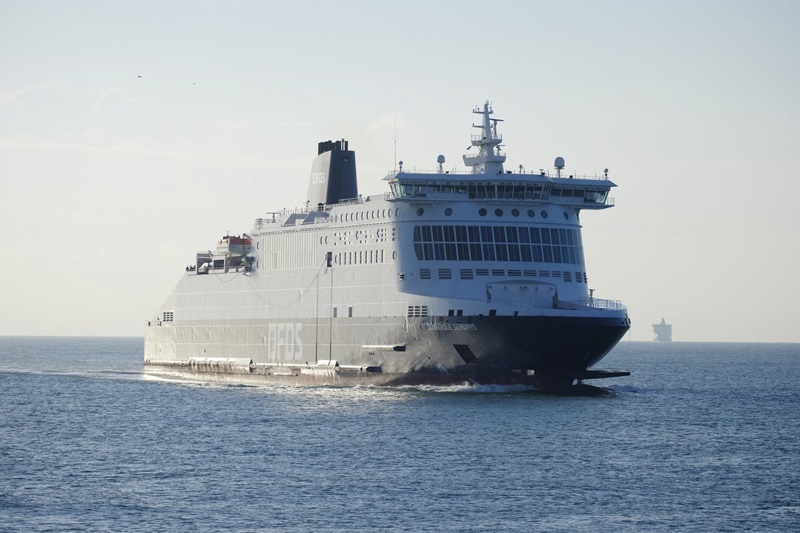DFDS is announcing a substantial €1 billion investment in battery electric vessels, marking its unwavering commitment to decarbonising maritime traffic in the English Channel.
In the future, maritime traffic in the Channel will be electric. DFDS is today announcing an expected €1 billion investment in six battery electric ships that will be deployed on the Dunkirk-Dover and Calais-Dover routes to carry passengers and freight between the UK and the European Union.

The first two electric vessels will be in operation by 2030, while the rest is expected to follow before 2035.
“This is an important step towards decarbonising cross-Channel transport. Because of the relatively short distance between the UK and France, the routes are optimal for electric ferry transport. The electrification of our cross-Channel fleet will be an important step towards meeting our climate targets and, with this investment, we are accelerating the transition to a greener future for the shipping industry,” says Torben Carlsen, CEO of DFDS.
The English Channel is one of the busiest shipping corridors in the world. It links two of the world's largest economies and accounts for 33% of trade between the EU and the UK. DFDS and the Port of Dover, the Port of Boulogne Calais and the Port of Dunkirk have committed to working together to decarbonise maritime traffic in the Straits of Dover through a Memorandum of Understanding on 15 March 2023.
Collaboration is the key to the transition to low-emission transport
DFDS is working with world-leading experts in battery technology, ship design and energy efficiency to design these advanced electric ships - including three under French flag - ensuring that their design encompasses safety and performance while using production methods that have the least possible impact on the environment.
In addition, DFDS works closely with national authorities, infrastructure partners and energy suppliers to secure the energy supply and infrastructure for electric ships. In recent years, DFDS and the French authorities have intensified dialogue, and the French government recently launched an ambitious plan for the country's energy transition, focusing on infrastructure.
“The green transition is not something we can achieve on our own. Without access to sufficient power supply on land and infrastructure to accommodate charging facilities in ports, we cannot operate the ships. I am pleased that we have a shared ambition with governments on both sides of the Channel to enable green transport corridors and we are delighted to be able to make this announcement at the 7th Choose France Summit initiated by French President Emmanuel Macron,” says Torben Carlsen.
In 2023, DFDS launched a new strategy - Moving Together Towards 2030 - which reconfirms the ambition to become a net-zero company by 2050 and to have six green ferries in service by the end of 2030, two of which will be electric ships for the Channel.
In France, DFDS has 5 vessels under French flag and employs 1,200 people, including 800 French seafarers.
In the UK, DFDS has a long history of working with authorities and partners, and fully supports initiatives to accelerate the decarbonisation of the UK's ports and shipping sector.